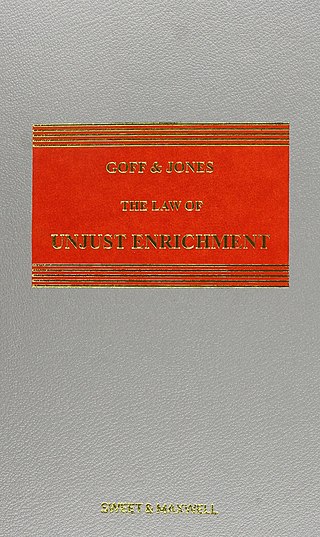Judgment
Applying the decision of Robert Goff J in Barclays Bank Ltd v W J Simms, Son and Cooke (Southern) Ltd [1980] 1 QB 677 the Court of Appeal refused to order restitution of the sums paid. Because the payment was within the customer's mandate it was a duly authorised payment on behalf of the customer. Accordingly, the payment discharged the customer's debt to the insurance company, and thereby any claim for restitution was defeated by the fact that the payee had given good consideration (discharge of the debt). The Court of Appeal cited with approval the dictum of Robert Goff J in Barclays Bank v W J Simms:
The effect of the bank's payment is to accept the customer's request for overdraft facilities; the payment is therefore within the bank's mandate, with the result that not only is the bank entitled to have recourse to its customer, but the customer's obligation to the payee is discharged. It follows that the payee has given consideration for the payment.
Peter Gibson LJ held that the defendant could not be said to be unjustly enriched because it had given good legal consideration for the payment. Accordingly, there could be no restitution.
Waller LJ took a slightly different approach, indicating that there could be no order for restitution because the payee had a good defence of change of position in that it no longer had a remedy against the debtor. Thorpe LJ gave a slightly ambiguous judgment which was unclear as to whether he preferred the reasoning of Peter Gibson LJ or Waller LJ.

Macmillan Inc v Bishopsgate Investment Trust plc [1995] EWCA Civ 55, [1996] WLR 387 is a judicial decision relating to English trusts law and conflict of laws case from the Court of Appeal. The issue arose in relation to frauds conducted by the late Robert Maxwell.

Office of Fair Trading v Abbey National plc and Others[2009] UKSC 6is a judicial decision of the United Kingdom Supreme Court relating to bank charges in the United Kingdom, with reference to the situation where a bank account holder goes into unplanned overdraft.

Dextra Bank & Trust Company Limited v Bank of Jamaica[2001] UKPC 50 is an important case in unjust enrichment in the Privy Council.
The English law of unjust enrichment is part of the English law of obligations, along with the law of contract, tort, and trusts. The law of unjust enrichment deals with circumstances in which one person is required to make restitution of a benefit acquired at the expense of another in circumstances which are unjust.

Lipkin Gorman v Karpnale Ltd[1988] UKHL 12 is a foundational English unjust enrichment case. The House of Lords unanimously established that the basis of an action for money had and received is the principle of unjust enrichment, and that an award of restitution is subject to a defence of change of position. This secured unjust enrichment as the third pillar in English law of the law of obligations, along with contract and tort. It has been called a landmark decision.

Baltic Shipping Company v Dillon, the Mikhail Lermontov case, is a leading Australian contract law case, on the incorporation of exclusion clauses and damages for breach of contract or restitution for unjust enrichment.
The English law of Restitution is the law of gain-based recovery. Its precise scope and underlying principles remain a matter of significant academic and judicial controversy. Broadly speaking, the law of restitution concerns actions in which one person claims an entitlement in respect of a gain acquired by another, rather than compensation for a loss.

The Law Reform Act 1943 is an act of the Parliament of the United Kingdom which establishes the rights and liabilities of parties involved in frustrated contracts. It amends previous common law rules on the complete or partial return of pre-payments, where a contract is deemed to be frustrated. It additionally introduces the concept that valuable benefits, other than financial benefits, may be returned upon frustration. It applies only to contracts governed by English law.

Bank of Ireland v Hollicourt (Contracts) Ltd[2000] EWCA Civ 263 is a UK insolvency law case concerning whether a bank should pay restitution for moneys paid out of its account after a moratorium under the Insolvency Act 1986 section 127.

BMP Global Distribution Inc v Bank of Nova Scotia, [2009] 1 S.C.R. 504, 2009 SCC 15, is a significant case of the Supreme Court of Canada on the law of restitution and tracing, in this case dealing with a bank's right to recover funds paid by mistake on the deposit of a fraudulent cheque.

Westdeutsche Landesbank Girozentrale v Islington LBC[1996] UKHL 12, [1996] AC 669 is a leading English trusts law case concerning the circumstances under which a resulting trust arises. It held that such a trust must be intended, or must be able to be presumed to have been intended. In the view of the majority of the House of Lords, presumed intention to reflect what is conscionable underlies all resulting and constructive trusts.
Financial law is the law and regulation of the commercial banking, capital markets, insurance, derivatives and investment management sectors. Understanding financial law is crucial to appreciating the creation and formation of banking and financial regulation, as well as the legal framework for finance generally. Financial law forms a substantial portion of commercial law, and notably a substantial proportion of the global economy, and legal billables are dependent on sound and clear legal policy pertaining to financial transactions. Therefore financial law as the law for financial industries involves public and private law matters. Understanding the legal implications of transactions and structures such as an indemnity, or overdraft is crucial to appreciating their effect in financial transactions. This is the core of financial law. Thus, financial law draws a narrower distinction than commercial or corporate law by focusing primarily on financial transactions, the financial market, and its participants; for example, the sale of goods may be part of commercial law but is not financial law. Financial law may be understood as being formed of three overarching methods, or pillars of law formation and categorised into five transaction silos which form the various financial positions prevalent in finance.

Kleinwort Benson Ltd v Birmingham CC [1996] 4 All ER 733 is an English unjust enrichment law case, concerning to what extent enrichment of the defendant must be at the expense of the claimant. It rejected a defence of "passing on" the gain against a claim of unjust enrichment.
Relfo Ltd v Varsani [2014] EWCA Civ 360 is an English unjust enrichment law case, concerning to what extent enrichment of the defendant must be at the expense of the claimant.

Goss v Chilcott[1996] UKPC 17 is a decision of the Privy Council on appeal from New Zealand relating to the law of restitution, and in particular the requirements of total failure of consideration in relation to loans where some repayments had been made, and the defence of change of position.

Barclays Bank Ltd v W J Simms, Son and Cooke (Southern) Ltd [1980] 1 QB 677, [1979] 3 All ER 522 was a decision of the High Court of Justice relating to the recovery of a payment mistakenly made by a bank after the customer had countermanded the cheque.

Smith v Lloyds TSB Group plc [2001] QB 541 was a decision of the Court of Appeal relating to the liability of a bank where it makes payment upon a fraudulently altered cheque. The case was a co-joined appeal from one High Court action and a County Court action.

Goff and Jones on the Law of Unjust Enrichment is the leading authoritative English law textbook on restitution and unjust enrichment. First written by Robert Goff and Gareth Jones, it is presently in its tenth edition. It is published by Sweet & Maxwell and forms part of the Common Law Library.

National Westminster Bank Ltd v Barclays Bank International Ltd [1975] 1 QB 654 is a decision of the High Court relating to the duty of care of a bank in relation to forged cheques with respect to persons other than their customer.

Barclays Bank plc v Quincecare Ltd [1992] 4 All ER 363 is a judicial decision of the High Court of Justice of England and Wales in relation to the banker-customer relationship, and in particular in connection with the bank's duties in relation to payment instructions from a customer's agent or purported agent which give rise, or ought to give rise, to a suspicion of fraud.















